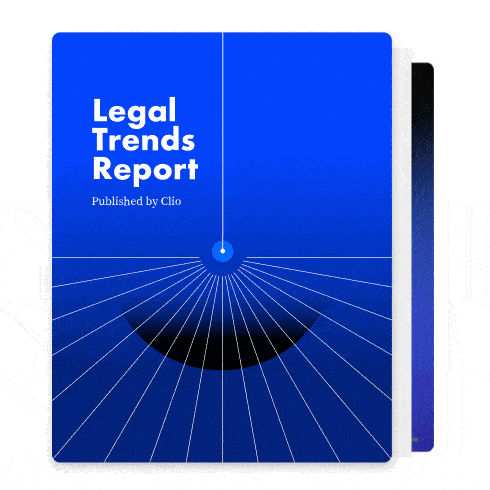In an unprecedented move, Broward County Circuit Court Judge Andrew Siegel recently used virtual reality (VR) technology during a stand-your-ground hearing. On December 14, 2024, he wore an Oculus Quest 2 VR headset to experience a defense expert’s recreation of the crime scene. The case involved Miguel Albisu, a wedding venue owner charged with aggravated assault. By immersing himself in the VR simulation, the judge was able to view the crime scene from the defendant’s point of view, offering a unique perspective on the incident.
This moment, a first for the American legal system, has sparked conversations about the future of legal proceedings and the ethical considerations of embracing such technology.
Explore AI insights in our latest report
Our latest Legal Trends Report explores the shifting attitudes toward AI in the legal profession and the opportunities it brings for law firm billing, marketing, and more.
Read the reportCan virtual reality help courts see the full picture?
The introduction of VR in courtrooms, alongside the abundance of AI innovations of recent years, is a transformative approach to presenting evidence. This technology enables judges and jurors to step into a crime scene or incident, offering an immersive understanding that goes well beyond traditional evidence presentation. By stepping into a virtual environment, legal professionals can better understand complex scenarios, potentially leading to more accurate and informed decisions.
But this innovation doesn’t come without challenges. Questions about how VR might impact the legal process are front and center. Could immersing judges in a virtual scene introduce emotional bias? How can we ensure these recreations are both accurate and fair? Ensuring impartiality alongside innovation will be crucial to making VR a trusted tool in the justice system.

Challenges and concerns
While VR holds exciting promise for courtroom applications, it also raises several questions. Ensuring the accuracy and authenticity of virtual recreations will be a major challenge, as courts will need to guarantee that these simulations are reliable and unbiased. This might require bringing in specialists to vet the data, adding both cost and complexity.
Cost is another hurdle, with VR setups costing anywhere from several thousand dollars to hundreds of thousands of dollars, potentially limiting access for smaller courts and underfunded jurisdictions. Moreover, there are significant risks tied to cybersecurity and privacy, as the data driving these simulations could be vulnerable to cyberattacks. And then there’s the human element—experiencing a crime scene virtually could elicit strong emotional reactions, potentially interfering with juror’s ability to remain objective.
You may like these posts
What VR means for the future of legal professionals
Virtual reality has the potential to completely transform how legal professionals manage cases. From virtual crime scene walkthroughs to interactive reconstructions, VR can offer a level of detail and immersion that traditional evidence can’t match. But this shift will require significant changes. Courts must rethink existing processes, establish clear rules for how VR evidence can be used, and invest in proper training for judges, lawyers, and staff. Balancing the benefits of immersive technology with the risks of bias or manipulation will be essential to ensure fairness and accuracy in legal proceedings.
As courtroom technology evolves, legal professionals need tools that can keep up. Clio Duo, your legal AI partner, helps you accelerate your casework and stay ahead of the curve. From completing everyday tasks to transforming information into actionable insights, Clio Duo takes care of it so you can spend more time on strategic work.
Want to see how Clio can work for you? Book a demo today!
We published this blog post in January 2025. Last updated: .
Categorized in: Technology
Explore AI insights in our latest report
Our latest Legal Trends Report explores the shifting attitudes toward AI in the legal profession and the opportunities it brings for law firm billing, marketing, and more.
Read the report





